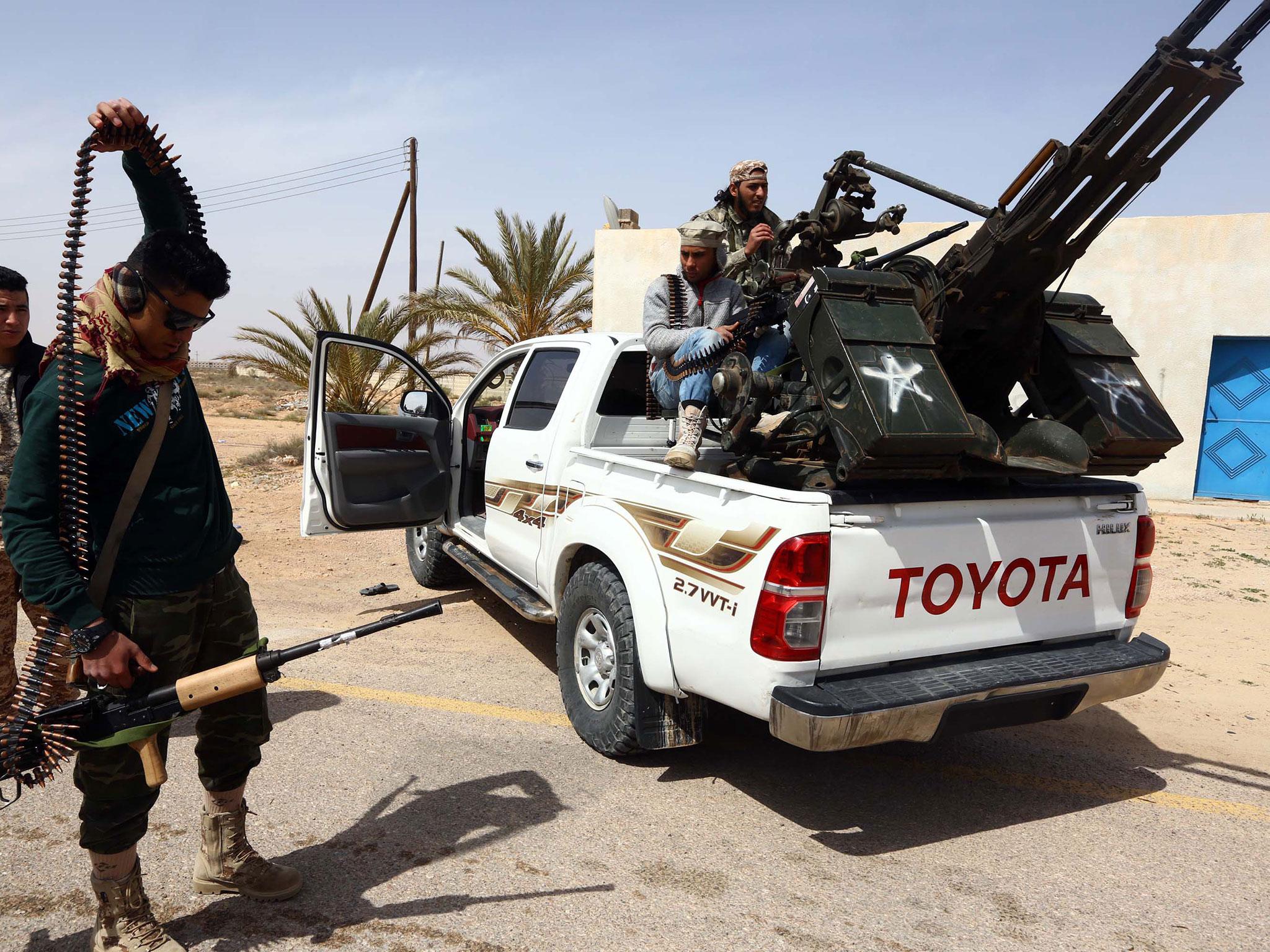Moscow and Beijing are right in backing the Vienna plan in Libya
The people of Libya deserve a respite from the violence and lawlessness which show no sign of ending

The current situation in Libya is a mess and a large part of this is due to misjudgement which marked the Western intervention in the uprising against Muammar Gaddafi’s regime and the failure to help build civic society which contributed to the chaotic aftermath.
It is also the case that the West is now moving to intervene again in Libya not so much because of the plight of the Libyan people, but because of its own deep concern over the tide of refugees coming to Europe across the Mediterranean and the growing presence of Isis in the country.
More than 20 states agreed on Monday at an international meeting in Vienna to a partial lifting of an UN arms embargo on Libya to enable supplies of weapons to be sent to the UN brokered government, headed by Fayez al-Sarraj, which is establishing itself in Tripoli, and start a training programme for its’ forces.
The move is being backed by all five permanent members of the UN Security Council. This, of course, includes Russia and China, two countries which had bitterly complained about being hoodwinked by the West over Libya in the past. Both had agreed to support a Western proposed UN resolution establishment of a ‘no-fly zone’ only to see this turn into a prolonged Nato bombing campaign.
Moscow and Beijing are right in backing the Vienna plan. Grievous mistakes made in Libya before is not a reason for inaction now. The threat posed by Isis in Libya and beyond its borders is very real: one only has to remember the Sousse massacre in Tunisia last Summer as an example of its reach. The country will continue being a conduit for refugees in a security vacuum which allows traffickers to thrive. And the people of Libya deserve a respite from the violence and lawlessness which show no sign of ending.
Is selectively arming the Government of National Accord (GNA) and its forces the right way to intervene? Another proposal under consideration had been a European military expedition of around 6,000 led by Italy. This has been shelved for the time being and that is the correct decision. The troop numbers were nothing like large enough for a viable campaign and the Sarraj administration should not be tainted by being blatantly beholden to foreign forces.
The steps being taken would not, one needs to accept, lead to an easy or quick solution. Libya remains deeply divided. The GNA is not recognised by factions of the administration based in Tobruk in the east or an Islamist administration in Tripoli. Then there is General Khalifa Haftar, running his own army, autonomous of the GNA, but backed by Egypt and the UAE, battling the Islamist administration and supposedly launching his own offensive against Isis.
Yet a number of militias have now swung behind the Sarraj government which has not been chased out of Tripoli by the Islamists which many thought would happen. The Libyan National Oil corporation and the Central Bank, the two institutions managing what wealth Libya have also added their support.
There is always the risk of ‘mission creep’, the possibility that special forces already there, and trainers due to arrive in the future, will get sucked deeper and deeper into a conflict and more troops will need to be sent. However, the alacrity with which plans for the European force was put aside shows there is very little appetite for putting anything more than limited numbers of boots on the ground from among Western governments.
There is no purely military solution to the Libyan crisis. All efforts must be made to reconcile the Sarraj government to the Tobruk administration and elements of the Islamist one in Tripoli. Gen Haftar will need to be brought into the fold and the Egyptians and the Emiratis will need to be persuaded to be part of the joint international action.
All this is a daunting proposition. But the alternative is to leave Libya floundering in the mess and hoping the problem will somehow go away.
Join our commenting forum
Join thought-provoking conversations, follow other Independent readers and see their replies
Comments
Bookmark popover
Removed from bookmarks